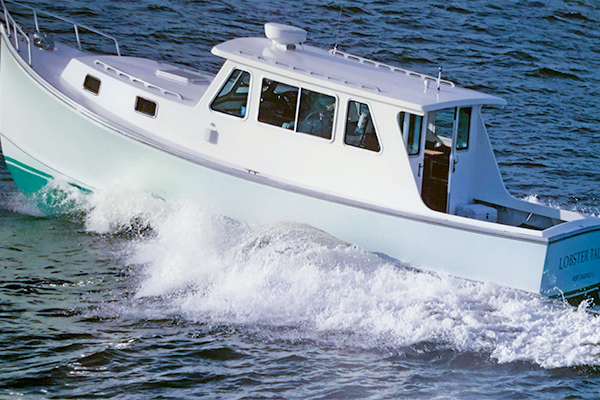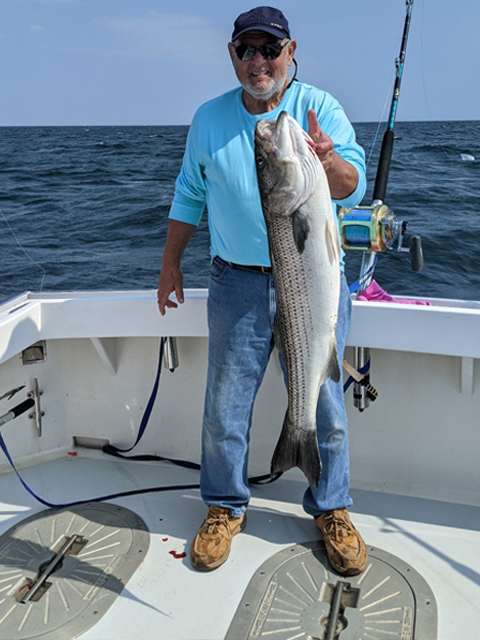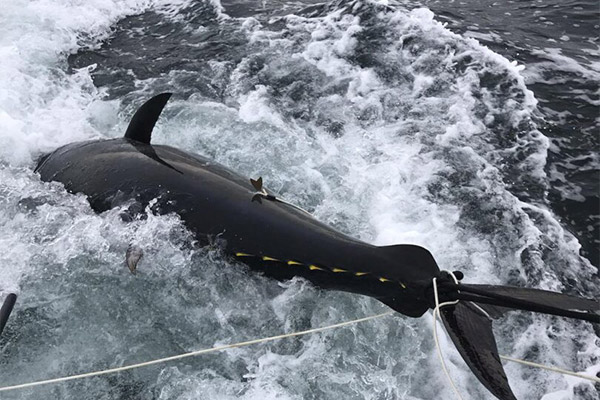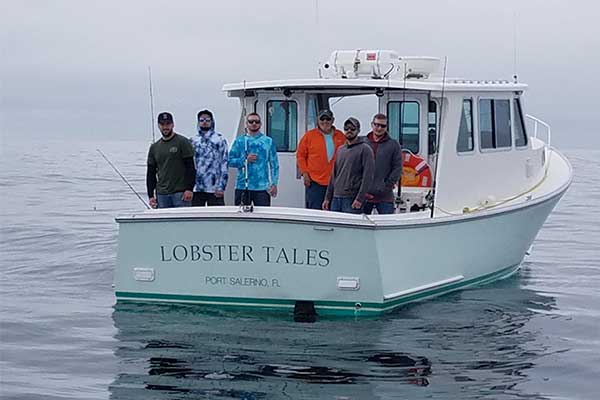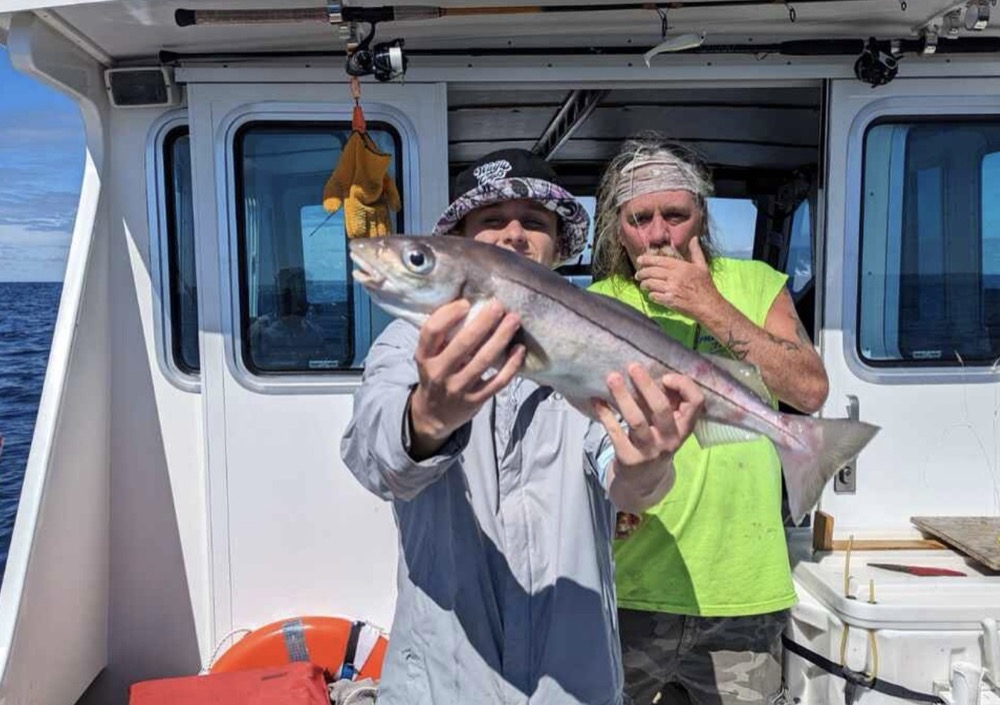Gloucester, MA Fishing Heritage & Sustainable Practices Guide
History of Fishing in Gloucester, MA
Gloucester, MA, has a storied history as one of America's oldest fishing ports, dating back to the early 1600s. This rich heritage has shaped the town and its community, making it a cornerstone of the fishing industry in New England. The city's geographical location, with its close proximity to rich fishing grounds, made it an ideal spot for the early settlers to engage in fishing activities. Over the centuries, Gloucester has seen its fair share of prosperity and hardship, with the fishing industry being at the heart of its economic fluctuations.
The development of Gloucester's fishing industry is marked by innovation and resilience. From the adoption of the schooner, which allowed fishermen to venture further into the Atlantic, to the modernization of fishing techniques, Gloucester has always been at the forefront of the fishing industry. The town's commitment to fishing is also evident in its culture and traditions, with generations of families dedicating their lives to the sea. Additionally, the Gloucester MA fishing charter services have become a significant part of the local economy, offering both residents and visitors alike the chance to experience the thrill of fishing in these historic waters.
Moreover, Gloucester's fishing legacy is preserved through various institutions and events that celebrate its history. The Cape Ann Museum, for instance, offers insights into the town's maritime history, showcasing artifacts and exhibits related to fishing, shipbuilding, and the lives of those who have called Gloucester home. The Fisherman's Memorial, a prominent landmark, stands as a solemn reminder of the risks and sacrifices associated with the fishing profession, honoring those who have been lost at sea. For those looking to immerse themselves in this rich heritage, the best fishing tours in Gloucester Massachusetts provide an unparalleled opportunity to explore the area's fishing grounds under the guidance of experienced locals.
- Gloucester is home to the famous Fisherman's Memorial, honoring those lost at sea.
- The town's fishing industry played a crucial role in America's economy during colonial times.
- Gloucester's annual St. Peter's Fiesta celebrates the city's fishing heritage and its patron saint.
Current State of Fish Populations
Recent studies indicate fluctuating Gloucester fish population trends, with some species experiencing decline due to overfishing effects in Gloucester and environmental changes. Sustainable practices are crucial to ensure the longevity of Gloucester's marine life. The Atlantic cod decline in New England, once the backbone of the region's fisheries, has seen dramatic declines, prompting stringent regulations and marine conservation efforts in Gloucester. Similarly, haddock population sustainability has faced challenges due to changing ocean conditions and overfishing.
Efforts to combat these declines are multifaceted, involving regulatory measures, scientific research, and community engagement. Breeding and restocking programs aim to replenish depleted stocks, while marine scientists employ advanced technologies to monitor the health and trends of fish populations. These efforts are critical in understanding the complex dynamics of marine ecosystems and devising effective strategies for their preservation.
Moreover, the community's response to these challenges has been proactive, with local fishermen, conservationists, and policymakers collaborating to ensure a sustainable future for Gloucester's fisheries. Initiatives such as habitat restoration, pollution reduction, and the promotion of sustainable fishing practices are testament to the community's commitment to preserving its marine heritage.
| Species in Decline | Conservation Efforts | Community Initiatives |
|---|---|---|
| Atlantic cod and haddock | Breeding and restocking programs, regulatory measures, scientific monitoring | Habitat restoration, pollution reduction, promotion of sustainable fishing practices |
- Atlantic cod and haddock are among the species that have seen significant declines.
- Efforts are being made to rebuild fish stocks through breeding and restocking programs.
- Marine scientists are closely monitoring the health of fish populations in the area.
Overview of Sustainable Fishing Practices
Sustainable fishing practices include selective gear, catch and release, and adhering to fishing quotas. These methods help maintain healthy fish populations and ecosystems. By employing selective gear, fishermen can target specific species, reducing unintended catch (bycatch) and minimizing damage to marine habitats. Catch and release practices, particularly in recreational fishing, ensure that juvenile and non-target species are returned to the ocean, promoting biodiversity and resilience in fish populations.
Adherence to fishing quotas is another cornerstone of sustainable fishing, preventing overexploitation and allowing fish stocks to recover. These quotas are based on scientific assessments of fish populations and are designed to balance the needs of the fishing industry with the health of marine ecosystems. Additionally, rotating fishing areas helps prevent the overexploitation of specific regions, allowing habitats to regenerate and maintain their ecological functions.
The development of biodegradable fishing gear and the use of technology in monitoring fish populations are examples of how innovation can support sustainable practices. Biodegradable gear reduces the impact of lost or abandoned equipment on marine life, while technological advancements in tracking and data analysis offer valuable insights into fish behavior, population dynamics, and the effectiveness of conservation measures. Together, these practices represent a comprehensive approach to sustainable fishing, ensuring the long-term viability of marine resources.
| Sustainable Practices | Benefits | Innovations |
|---|---|---|
| Selective gear, catch and release, fishing quotas, rotating fishing areas | Maintains healthy fish populations and ecosystems, promotes biodiversity, prevents overexploitation | Biodegradable fishing gear, technology for monitoring fish populations |
- Rotating fishing areas to prevent overexploitation of marine habitats.
- Development of biodegradable fishing gear to reduce ocean pollution.
- Use of technology to track fish populations and migration patterns for better management.
Local Regulations and Policies for Sustainable Fishing
Gloucester follows strict regulations set by both state and federal agencies, including size limits, seasonal closures, and protected areas, to promote sustainable fishing. These regulations are informed by the latest scientific research and are designed to balance the needs of the fishing community with the imperative of conserving marine ecosystems. Size limits ensure that only mature individuals are harvested, allowing younger fish to grow and reproduce. Seasonal closures protect fish during critical breeding periods, and protected areas safeguard essential habitats from the impacts of fishing and other activities.
The Magnuson-Stevens Act is a key piece of legislation guiding sustainable fisheries management in the United States. It establishes a framework for managing marine fisheries to prevent overfishing, rebuild depleted stocks, and ensure a sustainable future for the fishing industry. Local fishermen play a crucial role in the success of these regulations by reporting their catch, participating in scientific surveys, and adhering to best practices in sustainable fishing.
Community-led initiatives further enhance the effectiveness of these regulations. By protecting nursery grounds and spawning areas, these initiatives contribute to the health and resilience of fish populations. Educational programs and partnerships with conservation organizations raise awareness of the importance of sustainable practices and encourage community involvement in conservation efforts. Together, these regulations and initiatives form a comprehensive approach to sustainable fishing in Gloucester, ensuring the preservation of its marine heritage for future generations.
- Implementation of the Magnuson-Stevens Act, which focuses on sustainable fisheries management.
- Local fishermen are required to report their catch to ensure adherence to quotas.
- Community-led initiatives to protect nursery grounds and spawning areas.
Impact of Climate Change on Fishing in Gloucester
Climate change affects ocean temperatures and habitats, leading to shifts in fish populations. Gloucester's fishing community is adapting to these changes through innovative practices. The warming of ocean waters has altered the distribution of many fish species, with some moving to cooler, deeper waters. This shift requires fishermen to adapt their practices, targeting new species or changing their fishing grounds. Ocean acidification, a result of increased carbon dioxide absorption by the sea, poses another challenge, affecting the health of shellfish and other marine organisms.
Research into breeding heat-resistant fish species offers a potential solution to the challenges posed by warming waters. By selecting for traits that confer resilience to higher temperatures, scientists hope to ensure the survival of key species in changing conditions. Collaboration with climate scientists is essential in this endeavor, providing the data and models needed to predict the impacts of climate change on marine ecosystems and fisheries.
Adjustments in fishing practices, such as altering gear types, fishing depths, and seasons, are part of the adaptive response to climate change. These adjustments are informed by ongoing research and monitoring, which help to identify emerging trends and opportunities for sustainable fishing in a changing environment. Through innovation and collaboration, Gloucester's fishing community is working to mitigate the impacts of climate change, ensuring the continued vitality of its marine resources.
- Research into breeding heat-resistant fish species to adapt to warming waters.
- Collaboration with climate scientists to predict and mitigate the impacts of ocean acidification.
- Adjustments in fishing practices to target species that thrive in altered conditions.
Community Involvement in Sustainable Practices
The local community plays a vital role in conservation efforts, participating in cleanups, educational programs, and sustainable fishing initiatives. Gloucester's residents, aware of their town's deep connection to the sea, actively engage in activities that promote the health of their marine environment. Annual beach and harbor cleanups, for example, bring together volunteers from all walks of life to remove trash and debris, preventing pollution and protecting marine life. These events not only contribute to the cleanliness of the marine environment but also foster a sense of community and shared responsibility for its well-being.
Partnerships between fishermen and researchers are another key aspect of community involvement in sustainable practices. By sharing knowledge and experiences, these partnerships facilitate the development of innovative fishing techniques and conservation strategies. Fishermen provide invaluable insights into the behavior and condition of fish populations, while researchers offer scientific expertise and resources. Together, they work to ensure the sustainability of Gloucester's fisheries, balancing economic interests with environmental stewardship.
Community-supported fisheries (CSFs) represent a direct connection between local fishermen and consumers, promoting locally caught, sustainable seafood. Through CSFs, consumers can support the fishing community while enjoying fresh, high-quality products. This model encourages sustainable fishing practices, reduces the carbon footprint associated with long-distance seafood transport, and strengthens the local economy. By participating in CSFs and other sustainable initiatives, the Gloucester community demonstrates its commitment to preserving its marine heritage and promoting a healthy, sustainable future.
- Annual beach and harbor cleanups organized by local schools and environmental groups.
- Partnerships between fishermen and researchers to share knowledge and best practices.
- Community-supported fisheries (CSFs) that promote local, sustainably caught seafood.
Technological Advances in Sustainable Fishing
Modern technology, such as improved fish finders and eco-friendly gear, aids Gloucester's fishermen in minimizing their environmental impact while maintaining productivity. The adoption of satellite monitoring systems represents a significant advancement in the enforcement of fishing regulations and the protection of endangered species. These systems allow for real-time tracking of fishing vessels, ensuring compliance with designated fishing areas and quotas. This level of oversight is crucial in preventing illegal fishing activities and promoting sustainable practices.
Development of precision fishing techniques, facilitated by technological innovation, significantly reduces bycatch. By using more selective gear and better understanding fish behavior through data analysis, fishermen can target specific species more effectively, minimizing the capture of non-target species and juveniles. This precision not only benefits marine ecosystems but also enhances the efficiency and profitability of fishing operations.
Underwater drones are another technological tool transforming sustainable fishing practices. Capable of mapping habitats and assessing fish stocks with high accuracy, these drones provide critical information for the management of fisheries. By identifying areas of high biodiversity or vulnerable ecosystems, drones help in the planning of conservation efforts and the establishment of marine protected areas. The integration of technology into fishing practices underscores Gloucester's commitment to innovation and sustainability, ensuring the preservation of its marine resources for future generations.
| Technological Tool | Benefits | Applications |
|---|---|---|
| Satellite Monitoring Systems | Enforces fishing regulations, protects endangered species, prevents illegal fishing | Real-time tracking of fishing vessels, compliance with fishing areas and quotas |
| Precision Fishing Techniques | Reduces bycatch, benefits marine ecosystems, enhances fishing efficiency and profitability | Use of selective gear, data analysis for understanding fish behavior |
| Underwater Drones | Transforms sustainable fishing practices, provides critical information for fisheries management | Mapping habitats, assessing fish stocks, planning conservation efforts, establishing marine protected areas |
- Adoption of satellite monitoring to enforce fishing regulations and protect endangered species.
- Development of precision fishing techniques to reduce bycatch.
- Use of underwater drones for habitat mapping and stock assessment.
Challenges Facing Sustainable Fishing Efforts
Challenges include balancing economic needs with conservation, combating illegal fishing, and addressing the impacts of climate change on marine ecosystems. The increasing demand for seafood globally puts pressure on fish stocks, necessitating careful management and conservation measures to ensure sustainability. Illegal, unreported, and unregulated (IUU) fishing poses a significant threat to these efforts, undermining regulations designed to protect marine resources. The need for international cooperation is paramount in addressing IUU fishing, as marine ecosystems and fish populations do not adhere to national boundaries.
Climate change further complicates sustainable fishing efforts, altering ocean conditions and fish distributions. Adapting to these changes requires flexibility and innovation in fishing practices, as well as in the management of marine resources. The development of international frameworks for the management of migratory species and shared waters is crucial in this context, facilitating cooperation and coordination among nations.
Despite these challenges, there are opportunities for progress through the adoption of sustainable practices, technological innovation, and community engagement. By working together, fishermen, conservationists, policymakers, and the broader community can overcome these obstacles, ensuring the long-term viability of Gloucester's fishing industry and the health of its marine ecosystems.
| Challenge | Impact | Solution |
|---|---|---|
| Increasing demand for seafood | Pressure on fish stocks | Careful management and conservation measures |
| Illegal, Unreported, and Unregulated (IUU) Fishing | Undermines conservation efforts | International cooperation for regulation enforcement |
| Climate Change | Alters ocean conditions and fish distributions | Flexibility and innovation in fishing practices and management |
- Increasing demand for seafood leading to pressure on fish stocks.
- Illegal, unreported, and unregulated (IUU) fishing undermining conservation efforts.
- Need for international cooperation to manage migratory species and shared waters.
Future Outlook for Fishing Industry in Gloucester
With ongoing efforts in sustainability and community support, Gloucester aims to preserve its fishing heritage while ensuring a healthy marine environment for future generations. The exploration of aquaculture presents an alternative to traditional fishing methods, offering a sustainable way to meet the growing demand for seafood. By investing in marine science and education, Gloucester can foster the next generation of sustainable fishermen, equipped with the knowledge and skills to navigate the challenges of modern fisheries.
Enhanced collaboration between governmental bodies, non-governmental organizations (NGOs), and the fishing community is essential for effective policy development and implementation. Through shared goals and cooperative efforts, these stakeholders can address the complex issues facing Gloucester's fishing industry, from environmental conservation to economic sustainability. The integration of traditional knowledge with scientific research further enriches this collaborative approach, combining centuries of maritime heritage with cutting-edge innovation.
The future of Gloucester's fishing industry depends on the continued commitment to sustainable practices, community involvement, and adaptive management. By embracing change and working together, Gloucester can ensure that its fishing legacy endures, contributing to the well-being of its community and the health of the marine environment. The town's rich fishing history, combined with its forward-looking approach to sustainability, positions Gloucester as a leader in the global effort to preserve our oceans for generations to come.
- Exploration of aquaculture as an alternative to traditional fishing to meet seafood demand.
- Investment in marine science and education to foster the next generation of sustainable fishermen.
- Enhanced collaboration between governmental bodies, NGOs, and the fishing community for policy development.
Role of Education in Promoting Sustainable Fishing
Educational programs and workshops raise awareness about the importance of sustainable practices, empowering both current and future anglers to make informed decisions. School programs focusing on marine biology and the importance of ecosystems play a crucial role in cultivating an understanding of the marine environment among young people. These programs inspire a sense of stewardship and responsibility towards the conservation of marine resources.
Workshops for fishermen on sustainable techniques and gear innovations provide practical knowledge and skills, enabling them to adapt to changing conditions and regulations. By staying informed about the latest developments in sustainable fishing, fishermen can improve their practices, contributing to the health of fish populations and ecosystems.
Public seminars on the impact of seafood choices on marine conservation offer consumers insights into how their decisions can support sustainable fisheries. By choosing sustainably caught seafood, consumers can drive demand for responsible fishing practices, encouraging the industry to adopt more sustainable methods. Education is a powerful tool in the effort to promote sustainable fishing, fostering a community that values and actively contributes to the conservation of marine resources.
- School programs focusing on marine biology and the importance of ecosystems.
- Workshops for fishermen on sustainable techniques and gear innovations.
- Public seminars on the impact of seafood choices on marine conservation.
Comparison with Sustainable Fishing Practices Globally
Gloucester's approach to sustainable fishing aligns with global efforts, emphasizing the importance of local actions in achieving worldwide conservation goals. Similar initiatives in countries like Norway and Iceland focus on sustainable fishery management, employing advanced technologies and strict regulations to ensure the health of marine ecosystems. These countries have long been recognized for their commitment to sustainable fishing, serving as models for responsible practices worldwide.
Global certification programs like the Marine Stewardship Council (MSC) promote sustainable seafood by setting standards for responsible fishing. Gloucester's fisheries can benefit from participating in such programs, enhancing their reputation and access to markets that value sustainability. This alignment with global standards underscores the interconnectedness of local and global efforts in conserving marine resources.
International collaborations for research and sharing of best practices in sustainable fishing are essential for addressing the challenges facing the world's oceans. By working together, communities like Gloucester can contribute to and benefit from global knowledge and resources, advancing the cause of sustainable fishing on a worldwide scale. The exchange of ideas and experiences enriches the understanding of sustainable practices, fostering innovation and cooperation in the pursuit of a healthy and productive marine environment.
- Similar initiatives in countries like Norway and Iceland focusing on sustainable fishery management.
- Global certification programs like the Marine Stewardship Council (MSC) promote sustainable seafood.
- International collaborations for research and sharing of best practices in sustainable fishing.
Economic Impact of Sustainable Fishing on the Local Economy
Sustainable fishing not only preserves marine life but also supports the local economy by ensuring the longevity of the fishing industry and promoting tourism. The boost to local businesses through eco-tourism and seafood markets is significant, attracting visitors interested in Gloucester's maritime heritage and sustainable practices. These visitors contribute to the local economy, patronizing restaurants, shops, and tour operators that showcase the town's fishing culture and conservation efforts.
Job creation in sustainable fishing practices and marine conservation fields is another positive outcome, providing employment opportunities for the community. These jobs range from scientific research and environmental monitoring to sustainable aquaculture and eco-tourism, reflecting the diverse ways in which sustainable fishing contributes to the local economy.
The increased market value for sustainably caught seafood benefits fishermen and the community at large. Consumers are increasingly willing to pay a premium for seafood that is responsibly harvested, recognizing the importance of supporting sustainable practices. This trend encourages the fishing industry to adopt and maintain sustainable methods, contributing to the economic viability of Gloucester's fishing community and the health of its marine ecosystems.
- Boost to local businesses through eco-tourism and seafood markets.
- Job creation in sustainable fishing practices and marine conservation fields.
- Increased market value for sustainably caught seafood.
Conservation Efforts and Marine Protected Areas
Designated marine protected areas and conservation initiatives in and around Gloucester help protect critical habitats and biodiversity, contributing to the health of the marine ecosystem. The expansion of marine protected areas to include critical feeding and breeding grounds is a key strategy in preserving marine biodiversity. These protected areas provide safe havens for marine life, allowing populations to recover and thrive, free from the pressures of fishing and other human activities.
Community-led habitat restoration projects are another important aspect of conservation efforts. By rejuvenating damaged ecosystems, these projects enhance the resilience of marine habitats, supporting a diverse range of
- Expansion of marine protected areas to include critical feeding and breeding grounds.
- Community-led habitat restoration projects to rejuvenate damaged ecosystems.
- Partnerships with universities for ongoing research and monitoring of protected areas.
Interested in experiencing the best sustainable fishing charters adventure? Look no further than the best fishing charters near me - Tuna Tail Charters! Our expert team provides top-notch local fishing charter services with a focus on sustainability. Contact Tuna Tail Charters now or call us at 978-905-6200 to book your trip!
‹ Back



